
A crowd of some 200 people have turned out, with more still arriving, to voice their disgust at the series of unscreened wastewater releases into our seas by Southern Water.
The protests follow repeated combined sewer releases and failures at Southern Water pumping stations which have led to warnings to stay out of the water. The most recent were this month and in June which resulted in the majority of Thanet bays displaying warning signs to stay out of the water.
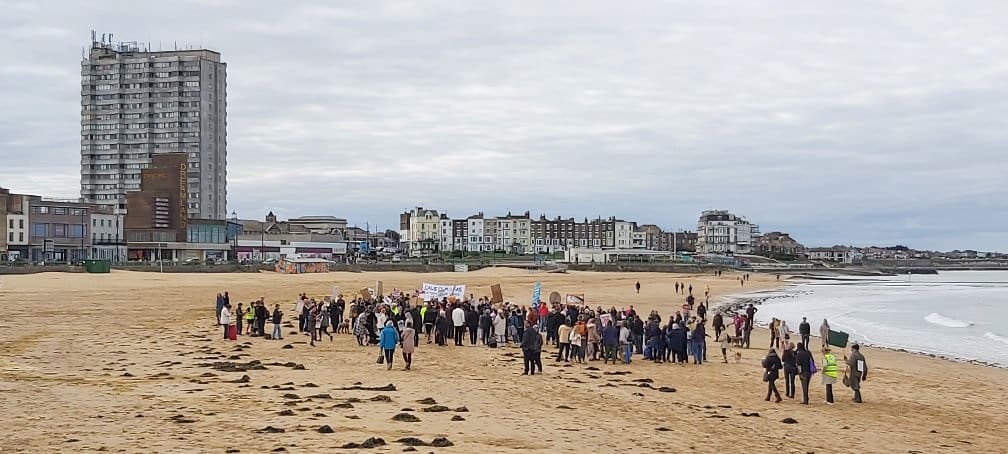
In June advice was issued against swimming at 11 Thanet beaches after a wastewater release from the Foreness pumping station. There have also been numerous combined sewer outflows affecting water quality.
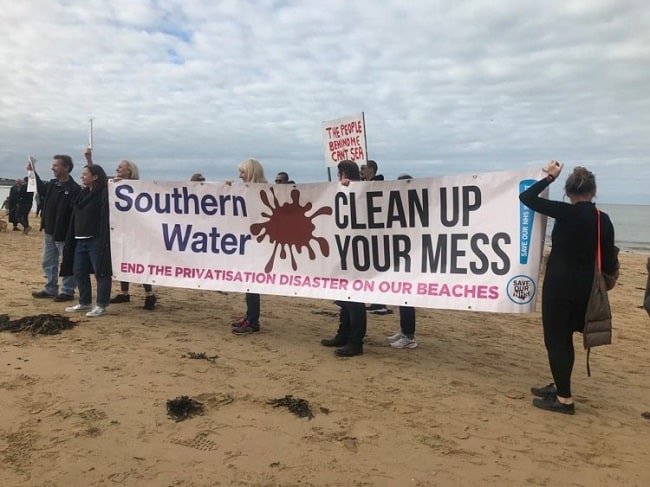
Today’s protest on the Margate harbour steps and beach is being co-ordinated by health campaigners from Save Our NHS in Kent.
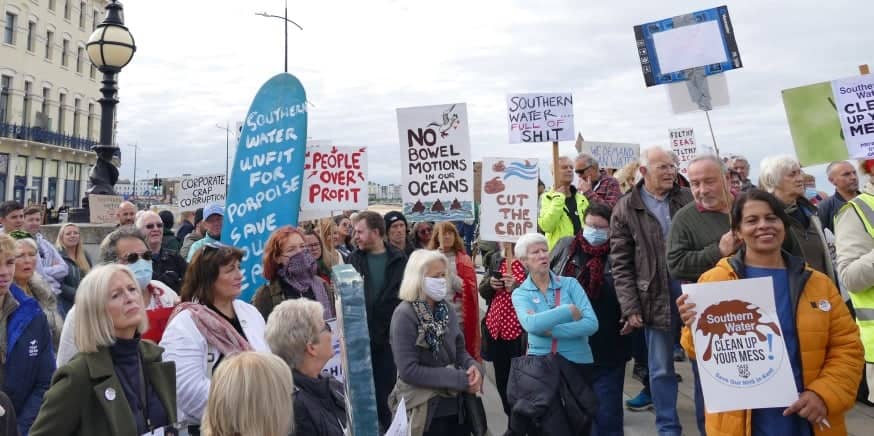
Save Our NHS In Kent (SONIK) is calling for the water company to be brought back under public ownership and to be made directly accountable for their impact on health and the environmental.
A spokesperson for SONIK said: “Year after year Southern Water has pumped raw sewage into the sea off the coast of Kent. These poisonous discharges pose an enormous risk to public health — they must be stopped.”
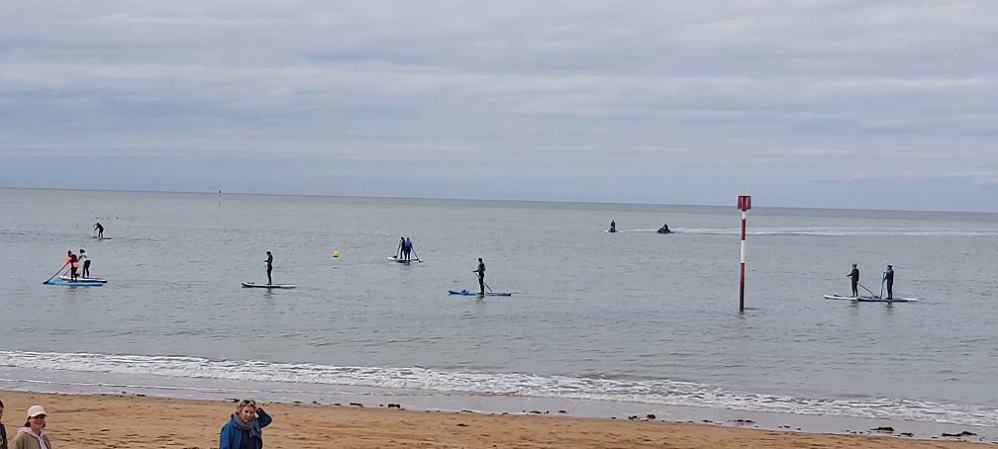
Speakers at today’s rally include author Julie Wassmer who is involved with Whitstable’s campaign against the waste releases. Members of Surfers Against Sewage, Thanet Green Party and Ramsgate mayor Raushan Ara also joined the demonstration and paddleboarders and others took to the water as part of the protest.
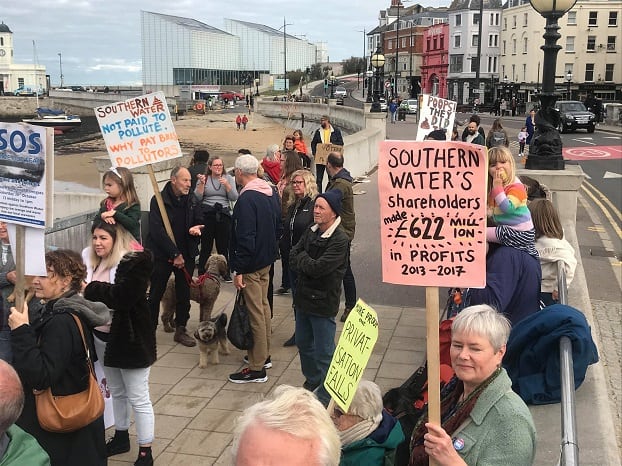
A second compensation request is being made of Southern Water by Thanet council leader Ash Ashbee following the closure of 14 isle beaches and bays this month.
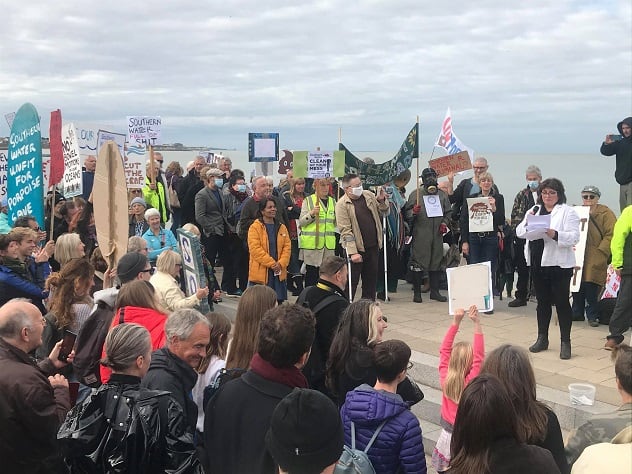
Cllr Ashbee has threatened to “add a nought” to the £100,000 received from the water company to compensate for the disruption and costs due to a previous discharge made from the Foreness pumping station in June.
Southern Water says: “We take all concerns raised with us about the performance of our network very seriously. Anyone attending this event can be reassured we hear their concerns and are working hard to improve our performance, with our customers and the environment at the heart of all we do.
“Bathing waters are the cleanest since Environment Agency (EA) testing records began. Of the 83 beaches in Southern Water’s area, 62 are rated good or excellent and none are below acceptable standards. We are spending £2 billion on our infrastructure and the environment, to serve our customers, the environment and boost local economies around our 700 miles of coastline.
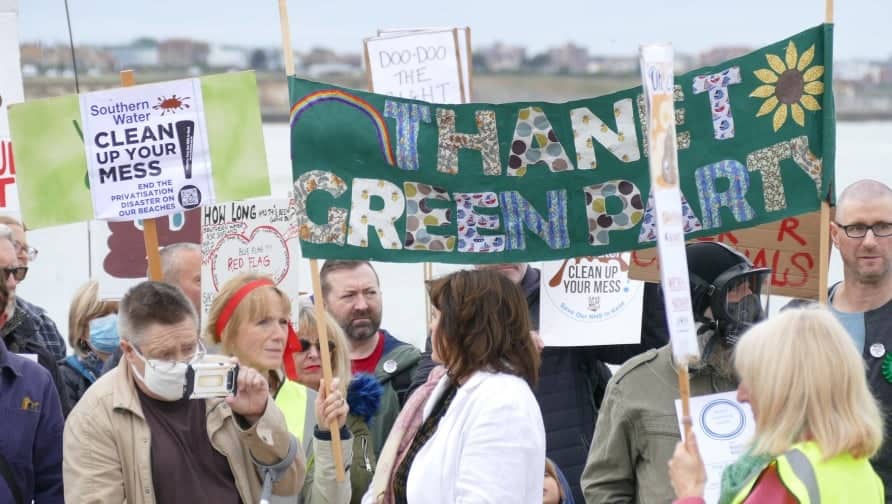
“Reports about E Coli levels based on unofficial testing can undermine peoples’ confidence in official, independent testing and reporting. The EA website reports on the levels of E Coli in bathing waters and has clear parameters in place for safety. E Coli is a very large family of bacteria which occurs frequently in sea water. Very few strains are harmful to humans.
“E Coli in sea water can be due to seagull and all bird droppings, dog waste, agricultural run-off, and litter from beaches. Wastewater can also enter the water via shipping vessels and leisure boats. Even bathing water samples taken and rated excellent through the Environment Agency’s independent bathing water testing programme will contain levels of E Coli, because it comes from a wide variety of sources.
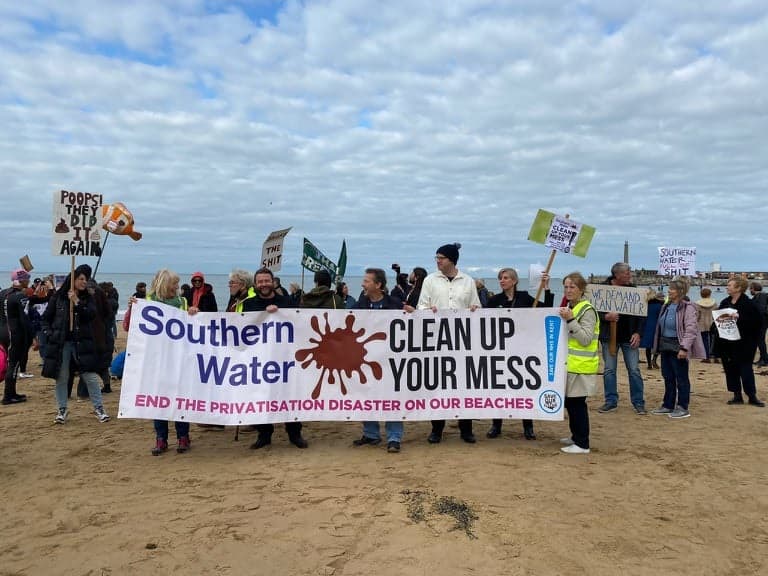
“Storm releases during intense periods of rainfall are made through long sea outfalls usually around 2km out to sea and are not raw sewage. They are often more than 95% rainwater. Storm releases operate to protect customers’ homes, schools, hospitals and businesses from flooding and they are tightly regulated by the EA.

“We are working towards reducing our reliance on storm releases as quickly as possible. There are huge challenges to overcome from climate change, which we know is going to increase the frequency of intense rainfall events. The population of our region will have increased by 15% in the next 25 years.
“We are pioneering a new approach, building more storm tank capacity where it will have an impact, and prioritising partnership working to prevent rain from reaching our systems through sustainable drainage, water gardens and major natural capital solutions such as enhanced and expanded wetlands.
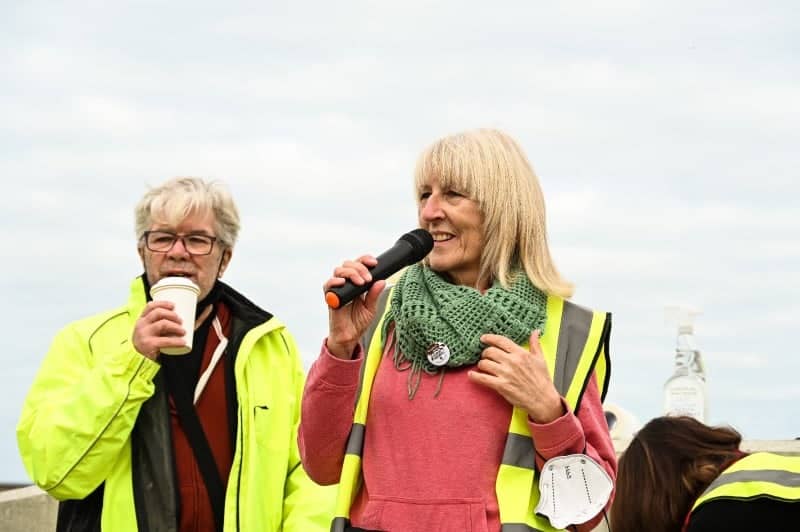
“Our industry-leading pollution reporting and online storm water release portal, Beachbuoy, is evidence of our commitment to openness and transparency. We accept and support the public’s call for these practices to change and we are working towards this common goal in partnership with our whole sector, government and a broad range of national and local partners. We are determined to reduce pollutions by more than 50% by 2025.

“We invite those involved with the protest to meet with us to hear about our work, our investment and our commitment to improve service to our customers and discuss ways to work together to achieve a goal we share, to protect the environment.”

MP Craig Mackinlay is among the MPs who rejected amendments to the Environment Bill put forward by the House of Lords.
(Clarification: Mr Mackinlay voted against government on one of the amendments) One of the Lords amendments was imposing a duty on water companies to “take all reasonable steps to ensure untreated sewage is not discharged from storm overflows”. Mr Mackinlay was one of a handful of Conservatives who voted against a government amendment to remove sections of the Lords Amendment concerning combined sewer overflows. This change was however voted through by a slim majority, meaning a vote in favour of parts it being removed.
North Thanet MP Sir Roger Gale was unable to vote on the amendments or the Environment Bill itself as he chaired the Bill through the committee stages and as chair, is obliged by parliamentary rule to take a neutral position in the voting lobby.
The bill will be returned to the House of Lords where amendments made by the House of Commons will be considered.

